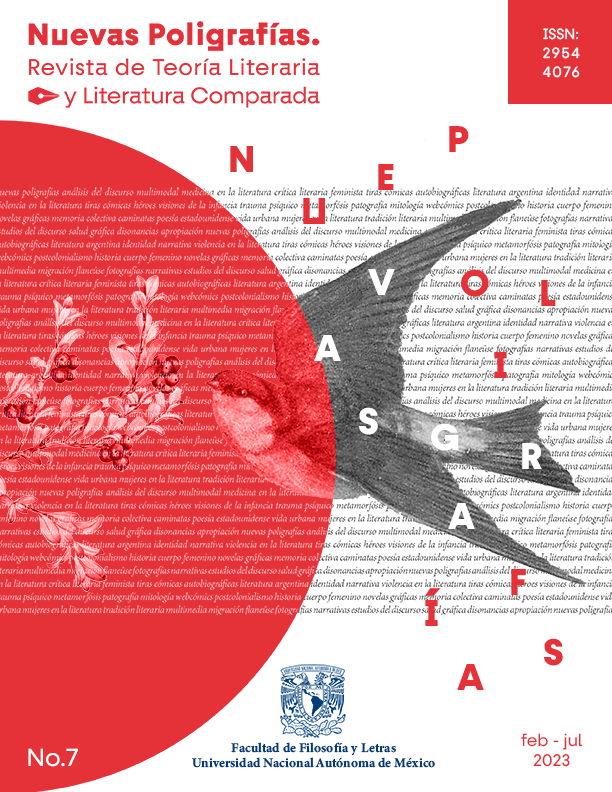“All water has perfect memory”: Slippage and Dissonance in Rebecca Hall’s Wake
Main Article Content
Abstract
Haunted by the erasure of the slave experience in the United States, Rebecca Hall poses a counter-narrative from a comic-book format to disrupt official records in an act of restorative historical justice in her graphic narrative Wake: The Hidden History of Women-led Slave Revolts (2021), illustrated by Hugo Martínez. In this article, I propose a way to examine two aspects that structure a hybrid space between autobiography, historical imagination, and official records in Hall’s narrative. On the one hand, I place a close lens on the dissonance between image and text as a means to feature two versions of history simultaneously. On the other hand, I propose that the slippage between self-ocularization and historical imagination makes a historical witness out of Hall while creating an opportunity for her to craft a restorative counter-narrative. Through these resources, Hall evades the limits imposed by historical archives, as she grants tangibility to stories written on water since the juxtaposition between literal language, found in the written word, and figurative language, expressed through illustrations, make her graphic narrative a site of memory where the author challenges and questions an “official” history while envisioning gaps in history as part of a restorative act.

